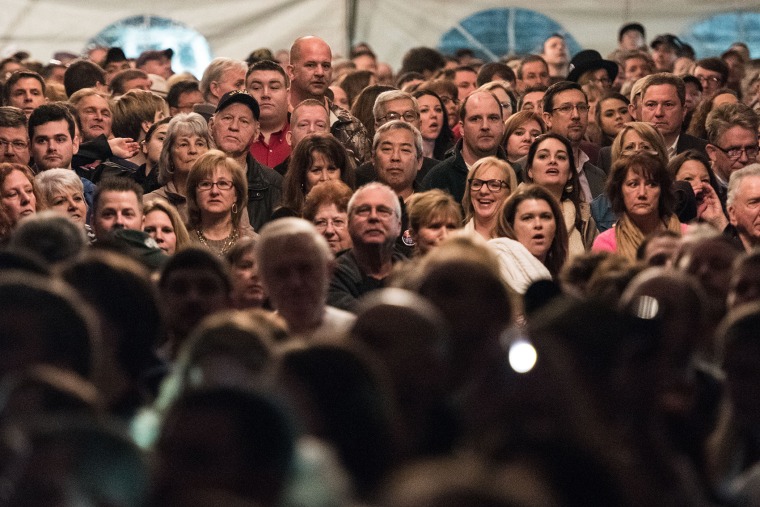During the race for the Democratic nomination, Bernie Sanders and his supporters would routinely emphasize the amazing crowds that would turn out for the Vermont senator's events. It was easy to understand why: the size of the audiences was often amazing, and for those hoping to see Sanders succeed, this was a more reassuring metric than vote totals and the delegate count.
But in the end, crowd size wasn't predictive. A candidate can host a rally with tens of thousands of people, and in the process prove that he or she has a strong following, but to assume that the crowds will deliver a victory is a mistake.
For some, however, the error still has appeal. The Huffington Post flagged a notable quote yesterday from a prominent figure in conservative media.
Fox News host Eric Bolling is sick of polls. Not only are they wrong, he said, but it's the size of crowds at Donald Trump's rallies that's much more important. "We have to stop with these polls, they're insane," Bolling declared on "The Five" on Wednesday (skip to 5:06 in the video above for this part). "You look at a Trump rally and there's 12, 15,000, 10,000 people and then you look at Hillary Clinton and you have, I don't know, 1,500, 2,000."
Donald Trump himself expressed a similar sentiment in late June, telling conservative radio host Mike Gallagher how impressed he is with the "massive" crowds that turn out for his events. "I walked out of one [recent event], and I said, 'I don't see how I'm not leading,'" the Republican candidate said at the time.
Trump added, "We have thousands of people standing outside trying to get in, and they're great people and they have such spirit for the country and love for the country, and I'm saying, you know, 'Why am I not doing better in the polls?'"
The answer, of course, is that crowd size isn't all that relevant.
I'm not unsympathetic. It's easy to imagine a candidate walking onto a stage, seeing 10,000 screaming fans, and thinking, "Wow, I must be pretty popular." For a political novice who's never before run for any public office and has no campaign experience, it's even easier to understand the confusion.
But crowd size is proof of a candidate with a credible base of core supporters. When it comes to winning a national presidential race, that's not enough. The most reliable measure of meaningful, broad support is public-opinion polling. To assume that data is wrong because it seems to contradict crowd size is to find importance in the wrong measurement.
This isn't to pick on Trump and his fans exclusively. MSNBC's Steve Kornacki flagged a report this morning from the fall of 1984, when Walter Mondale pointed to crowd sizes as proof the polls -- which showed him losing badly to Ronald Reagan -- could be wrong.
Mondale soon after lost 49 states.
As we discussed a couple of months ago, it may be easier to believe "crowds = victory" than to accept polls showing your side trailing, but that doesn't change the fact it's a recipe for failure.
